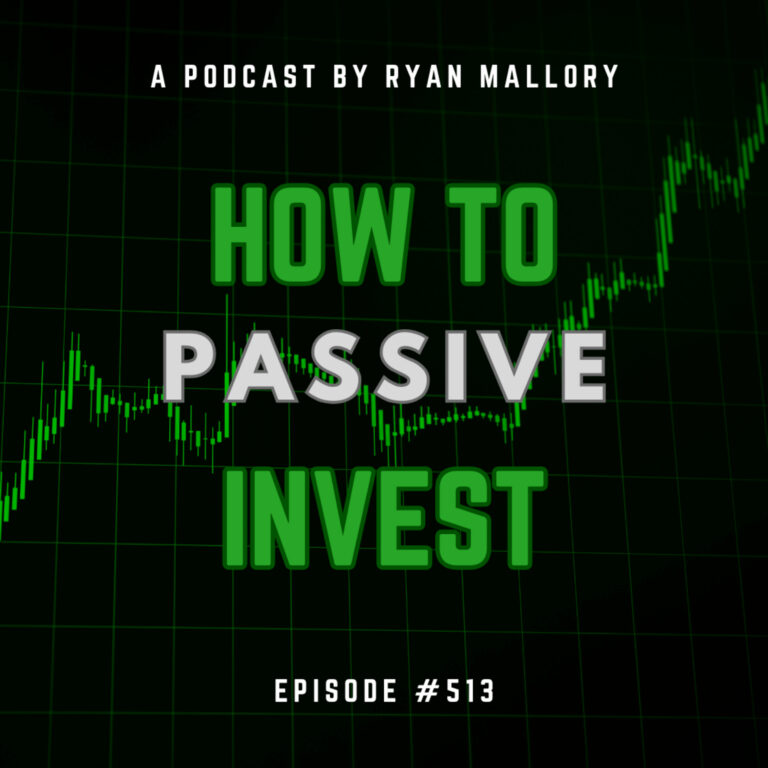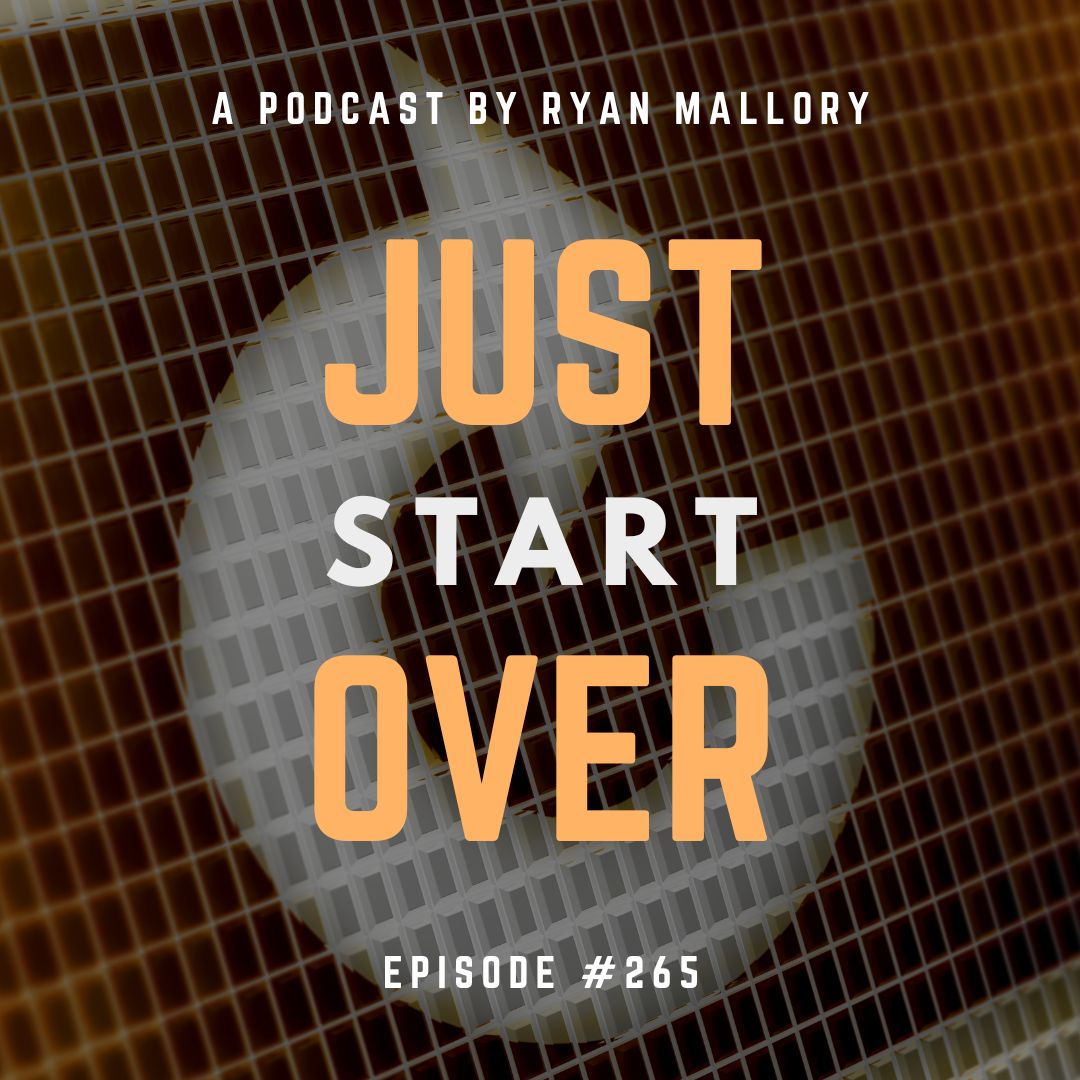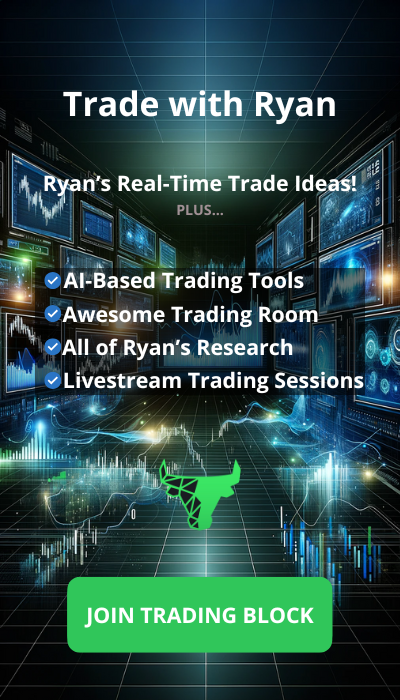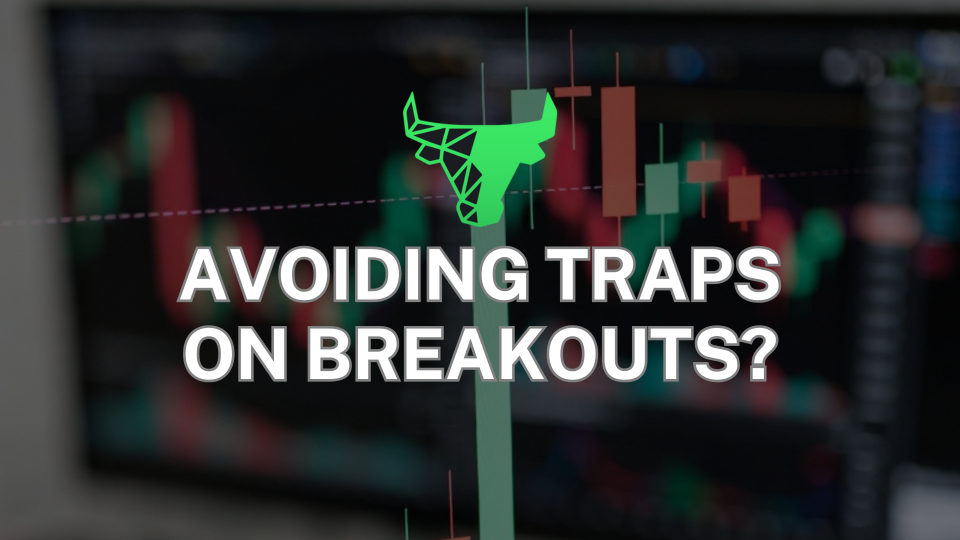Episode Overview
One trader has seen his trading account drop by 33% and after 82 trades in the stock market since February, he’s asking the question, “Should I just admit that I’ve blown up my account, and start over?”
Available on: Apple Podcasts | Spotify | Amazon | YouTube
Episode Highlights & Timestamps
- [0:07] Introduction
Ryan kicks off setting up today’s topic around small accounts and managing early trading losses. - [0:41] Listener Email from GW Boone
A new trader shares how his $300 account is now down to just over $200 after 82 trades and asks if it’s time to start over. - [3:52] Learning From Losses
Ryan explains why the lessons gained from losing $100 are far more valuable than the money itself and stresses the importance of reflecting on risk management. - [7:04] Focusing on Percentages, Not Dollars
Ryan encourages traders to stop fixating on dollar amounts and instead judge trades by percentages, building good habits that translate to larger accounts later. - [12:05] Trading Psychology and Resources
Ryan highlights the value of trading psychology books, his own research services, and learning from mistakes to grow as a trader.
Key Takeaways from This Episode:
- Small Account Lessons: Losing money in a small account can be an inexpensive but valuable education for new traders.
- Risk Management: Every trade should have a stop-loss and a clear plan for managing risk.
- Focus on Percentages: Successful traders measure trades by percentages gained or lost, not the raw dollar amounts.
- Avoid Unrealistic Expectations: Expecting huge gains from small accounts often leads to poor trading decisions.
- Invest in Learning: Reading trading psychology books, studying market behavior, and tracking mistakes are critical for growth.
Resources & Links Mentioned:
- Swing Trading the Stock Market – Daily market analysis, trade setups, and insights by Ryan Mallory.
- Join the SharePlanner Trading Block – Get real-time trade alerts and community support.

Take the Next Step:
✅ Stay Connected: Subscribe to Ryan’s newsletter to get free access to Ryan’s Swing Trading Resource Library, along with receiving actionable swing trading strategies and risk management tips delivered straight to your inbox.
📈 Level Up Your Trading: Ready for structured training? Enroll in Ryan’s Swing Trading Mastery Course, The Self-Made Trader, and get the complete trading course, from the foundational elements of trading to advanced setups and profitable strategies.
📲 Join the Trading Community: Sign up for SharePlanner’s Trading Block to become part of Ryan’s swing-trading community, which includes all of Ryan’s real-time swing trades and live market analysis.
Full Episode Transcript
Click here to read the full transcript
0:07
Hey, I’m Ryan Mallory, and this is my swing trading the stock market podcast. I’m here to teach you how to trade in a complex, ever changing world of finance. Learn what it means to trade profitably and consistently, managing risk, avoiding the pitfalls of trading, and most importantly, to let those winners run wild.
0:25
You can succeed at the stock market, and I’m ready to show you how. Hey everybody, this is Ryan Mallory with Swing Trade in the stock market. In today’s episode, we’re gonna talk about whether a particular listener has blown up his account and should just simply start on over.
0:41
So this email comes from a guy who wants to be called GW Boone. GW Boone. It is an interesting choice. So he writes, Hello, Ryan, love the show. Thank you and keep up the fantastic work. I’ll keep it simple.
0:57
New trader here as of February this year, I started out with $300 in my brokerage account simply to learn the ropes. After 82 trades, I am now down to just over $200. At what point should I consider it blown and start over? Much gratitude, GW Boom.
1:12
PS, do you have any opinions on Mark Douglas’s work? Good question. Kind of an interesting one because he’s dealing with a small account here. He’s gone from $300 to $200. That’s like a 33% loss. But it’s also Only $100 too, and I know that I’m not trying to like act like $100 isn’t something.
1:29
I mean, it’s definitely not as much as it was just a year ago, but nonetheless, it’s something that’s very recoverable, just from a financial standpoint, right? And think about how many things that we’d spend $100 on and sometimes don’t even blink an eye at. But first, before I get too far into that, what am I drinking? I am drinking Knob Creek, single barrel select bourbon.
1:48
This is a bourbon made out in Claremont, Kentucky. Usually they tell you on the. Knob Creeks, how many years it’s been aged? Like, most of them are like 9 years. This one doesn’t say this is a single barrel select from Total wine. They basically chose the barrel. It’s 60% alcohol, 120% proof, which that’s pretty strong.
2:07
Hopefully it doesn’t affect me too much when I’m doing this podcast here, but usually they do tell you that and they don’t tell you on here. So I’m assuming it’s 9 years now. I just did a review just recently on the 15 year and it was fantastic. I gave it a 8.1. I’ve also used most of the time Knob Creek for the 9-year 1, that is for my old fashion.
2:26
Now, it’s a lot harder to find a handle at a decent price that 9 year. It used to be like you could get it for $45 to $46. Now it’s people selling it for $65 to $70 for a full handle. So I’ve gone to Evan Williams. I think it’s just as good as the Knob Creek 9 year for your old fashion.
2:43
But this one here is a single barrel and to the nose, oh, it really, it just, hmm, it burns. It’s got a little smoky flavor, a little oak, but boy does it burn, man. I mean, it wakes you up. Now to the taste. You got licorice, you got nut, you got rye, you got corn, you got wheat.
3:03
I mean, it’s all over the place. It’s like a smorgasbord of flavors. And I’m not sure I necessarily like all of them together. And the finish is not what I would call overly flavorful. It has some like peppermint flavor, but it comes on strong, doesn’t burn you on the way down, so that’s a positive.
3:20
I’m gonna give it like a 77. 3 out of 10. I don’t think it’s an everyday sipper. I think I paid about $50 to $60 a bottle. I mean, you can’t go drinking this stuff every night when it’s 60% alcohol. I mean, you’ll be drunk as a sailor most nights. But I do think you can make this a weekend sipper.
3:35
I think it’s a weekend sipper. I don’t think it’s a high quality weekend sipper, but I think it’s more on the low end, 7.3, Knob Creek, single barrel select bourbon from Total Wine. Now, let’s get back to GW Boone. Couple of things I picked up here from GW Boone.
3:52
First off, he starts out with a $300 brokerage account for the reason to learn the ropes. OK. So you’re learning here, OK? We’re not starting out with an account that’s like $100,000 and if you blow it, it’s a significant. can’t loss. $300 yes, you’re down 33%, but you’re learning the ropes, right?
4:13
So that was the objective going into it. He’s made 82 trades and he’s down over $100 on those 82 trades. Now, if he started at the very beginning of February of this year. As of this email that he sent me that it was on July 19th, he’s had about 110 trading sessions, so a little bit less than one trade a day.
4:33
Now, I don’t know what his position size is, but let’s say he’s dedicating $100 to each trade or a third of his account to each trade. That would be about one trade every few days. But now, if he’s going like with $82 and he’s essentially like day trading for the most part, I don’t know how he’s getting away with it, which makes me think maybe he’s not day trading, maybe he’s doing a $150 on each trade.
4:56
Maybe he’s doing like two trades, if that’s the case, that’s a little bit more realistic. But one of the things that I find interesting is that he feels like he’s blown it and he needs to start over. My question would be is, what have you learned from your journey from $300 in your account down to $200? What have you learned over the course of 82 trades in 110 days?
5:15
I would probably say that’s a little bit too much for a $300 account. That’s just me looking at it from a general standpoint, but you’ve lost $100 but the lessons that you learned is way more valuable than the $100 that you lost. These Lessons go well beyond the financial loss.
5:35
So, what have you learned? What have you learned about managing the risk? For those who listen to this podcast a lot, you know, I talk about managing the risk in every one of these episodes. What have you learned about risk management? What have you learned about placing stop losses, planning out your trades?
5:51
It’s funny. You may not be a successful trader yet, and I’m not saying that that’s funny, kind of thinking something in my head here and I’m gonna get to it in a second. You may not think that you’re a successful trader yet, but you’ve learned a lot of different ways over these 82 trades on what a successful trader is not.
6:06
Now I was married once before for about 9 years, and those 9 years was pretty much hell on earth for me. And I’m not gonna get too into the personal details, right? But during those 9 years, I learned what a marriage is not. And so I’m married again, happily married again, to the love of my life, and going into it, I hadn’t experienced what a successful marriage was.
6:28
But I could have told you I had about 9 years of experience of what a marriage was not, and I took those lessons that I learned from that marriage and I applied it to the next one. I learned about, you know, learning to bite my tongue on things, about learning to embrace the fact that I saw. Answer turns away wrath.
6:43
If you read the Bible, you’ll know that comes from the Book of Proverbs. So over the course of a 9 year failed marriage, I learned what a marriage was not, and that was actually able to help me in the application to my current marriage in terms of how to be a better husband, how to be a better man. And so what I would say to GW Boone, you’ve lost $100.
7:04
But in that $100 and in those 82 trades, you learned a lot about what a successful trader is not. So ask yourself, OK, how many different times did I let a good trade that I was up maybe 5 or 10% go to red? How many losing trades should I not even have been in at all?
7:19
How many trades did I take out of just pure revenge, out of pure frustration? How many trades did I take because I didn’t respect the money that I was trading, the cap. That that was bestowed upon me to trade. A lot of times we’d look at $300 and I was like, it’s $300. I won’t worry about that. Or let’s say he was putting $100 on every trade and he’s up 10%.
7:37
Yeah, it might only be $10. But if we’re trying to become a long-term trader that’s good at his craft, that 10% means much more than the $10 that you made off of a $100 position. It represents the fact that you might have planned out your trade correctly and that you executed it correctly and that you took profits correctly.
7:57
But if you went into the trade saying, well, $10 doesn’t mean much to me. I need like a 100% return in order to make money off of it, you probably are going to lose on most of your trades because of their unrealistic expectations. You don’t go into every trade and I can make 100%.
8:12
And if you’re trading off. That’s a little bit much trying to get into options with the $300 account. And really, before you get into options, you need to become a good equities trader. I’ve done options. I don’t like options. I’ll do some covered calls from time to time on some of my long-term investments, but in the grand scheme of things, I don’t like them.
8:31
I think that there’s so many variables that you have to account for that even if you’re right on the trade, you might not be right on the trade as it pertains to the time frame you’ve got. Those option calls or puts and you still lose. Options trading is set up for you to lose. So I would ask GW Boon, are you focused on the dollars or are you focused on the percentages?
8:49
Because as a successful trader, we need to pay less attention to the dollars of the trade. If you’re dollar watching, you start to personalize that money. And in this case, because you’re trading with a small account, you could be personalizing it in a negative way to where it doesn’t mean enough for you to take profits on a 10%.
9:05
Or a 20% trade because in the end, you’re like, yeah, it’s just a 20% trade. You may be saying to yourself, I need $100 or 200%. So then you get into riskier assets or you’re saying to yourself, because I’m only trading with $100 I need to get into stocks that are only like 1 or $2 a share. No, I think that, I mean, you can’t go trading Berkshire Hathaway with $300 or a number of other stocks.
9:25
Especially if you’re doing a $100 position sizes, yeah, it’s gonna be hard to get into Apple unless you’re doing fractional shares. And even then, that’s still a path that one can take with a small account. And in a day and age where we don’t have commissions, look, if you were trading with $300 just a few years ago, it would have been impossible.
9:41
I mean, you’d be getting knocked out, you know, like 5 to 10% on your overall position with just commission fees. Heck, if you did it about 20 years ago, you’d have to make 40% on a trade just to break even on a $100 trade position. So it wasn’t feasible, it wasn’t possible.
9:58
And so that same barrier that kept people out of the markets 20 years ago because of crazy high commission prices, it’s kind of like the same thing that traders are doing in today’s day and age thinking that because they have a small account, they need to make 100% on their trade. It’s like the same thing. You have to reach these astronomical returns just to make it worthwhile in your mind.
10:18
And you should, you should say, hey, I made 10% on the trade. Who cares if it’s $10? Who cares if it’s $15 or $20 that you made off of the trade. Because in the end, we’re trying to become good traders. We’re trying to be able to manage our position because if you can do it with a little, you can also do it with a lot.
10:33
But with a small account, you start getting all crazy with the expectations for what the return should be just because it’s a small account. That kind of mentality can leak into a bigger portfolio, like, let’s say, you know, Pops died, God forbid. And you inherit his money and all of a sudden you’re trading with $100,000 that same mentality that you had with a small dollar amount could leak into the large dollar trades.
10:55
So you want to stay away from that kind of mentality where you’re just focused on the dollars that you’re making on the trade and not the percentages. And by the way, I got to bring this up. I’ve been trying this new product. That Magic Mind sent me it’s their energy shot. Man, this stuff has got all sorts of good stuff in it, but one of the best things that it has in it is this matcha.
11:13
It’s an energy shot. It’s actually really green. I mean, the whole bottle’s green. And so I get kind of nervous when I tried this stuff because I think to myself, oh, it’s not gonna be that great, but I tried it and it’s pretty darn good. Magic Mind. It’s going to give you energy, it’s gonna help you relax, keeps you focused, and it makes you happy.
11:31
Really good, really good. It’s got a very healthy taste. You can drink it with your coffee. I mean, just a really solid drink. So check them out. They’re magicin.co. Really good stuff, guys. And don’t forget to check out. swingtradingthestockmarket.com. That’s where you’re gonna get a lot of my stock market research that I provide people with each and every day.
11:49
You’re gonna get it and you’re going to be able to support this podcast in the process. So check it out, swingtradingthestockmarket.com. All my stock market research sent to you each and every day. We’ve actually covered a lot in this podcast, but he also asks me about Mark Douglas. What do I think about the Mark Douglas books?
12:05
He gets into a lot of the trading psychology. Probably the best book that I feel like he’s written, and I’m not paid to say this at all, but I do appreciate his books. They’ve helped me as a trader over the years as well as Trading in the Zone. I have a copy of it, really, really good book. Of course, my favorite book still remains, Reminiss of a Stock operator, and I can barely ever say that title correctly.
12:25
But that’s the best trading book you’ll ever read. So to wrap up some of the stuff that we’ve talked about here, GW Boone, he’s made 82 trades in 110 days. He didn’t give us the amount of money that he was putting on each position site, so I was just basically able to give some examples of, you know, if he was doing day trading versus swing trading and so forth.
12:44
Let’s be honest, if he’s doing day trading with $300 it’s gonna be very, very difficult to make money if you’re not holding a position overnight. And if you’re doing that, you’re likely trading. With some very, very high risk, highly volatile stock trades where you’re fomoing into positions because you’re seeing everybody else doing it as well.
13:01
That’s really not a good sustainable trading strategy in my opinion. But he needs to make sure that he’s focused on the percentages, not the dollars. It’s really easy to do that with a low dollar account. But beyond that, He got into it because he wanted to learn the ropes of trading. OK, what did you learn?
13:17
Man, you should be writing out everything you learned from all 82 trades. Try to find trends, try to find tendencies in your trading. Are you panic selling? Are you panic buying? What are you doing that you feel like if you can. Change that one aspect. Maybe it’s just one thing or if nothing else, find one thing that you can change and make yourself a better trader.
13:36
One tendency that you can see was problematic or unconstructive towards your path of being a successful trader and then stop doing it. As for starting over, I’m not so sure it’s necessarily the right term. Hey, I need to start over here. I think if anything, look at your overall strategy.
13:52
What are you doing right? What are you doing wrong? Make adjustments. And continue to learn as a trader. Read some of those Mark Douglas books, read reminiscences of a stock operator. Learn more about technical analysis. Watch my YouTube channel, subscribe to swingtradingthestockmarket.com. Learn from the people who are successful in the stock market.
14:10
And if you enjoy this podcast episode, I’d encourage you to leave me a 5 star review. They do mean the world to me. I do read them all and appreciate every one of them and keep sending me. Your email is ryan@shareplanner.com. I do read them and I try to put every one of them on air.
14:26
I know I haven’t gotten all of them on air, but I do try to put almost all of them on air. So ryan@shareplanner.com and don’t forget to sign up for swingtradingthestockmarket.com. Thank you guys, and God bless. Thanks for listening to my podcast swingtradingthestockmarket.com.
14:42
I’d like to encourage you to join me in the SharePlanner trading block where I navigate. The stock market each day with traders from around the world. With your membership, you will get a 7 day trial and access to my trading room, including alerts via text, email, and WhatsApp. So go ahead, sign up by going to shareplanner.com/tradingblock.
15:01
That’s www.shareplanner.com/trading-block, and follow me on SharePlanner’s Twitter, Instagram, and Facebook where I provide unique market and trading information every day. If you have any questions, please feel free to email me at ryan@shareplanner.com.
15:17
All the best to you and I look forward to trading with you soon.
Enjoy this episode? Please leave a 5-star review and share your feedback! It helps others find the podcast and enables Ryan to produce more content that benefits the trading community.
Have a question or story to share? Email Ryan and your experience could be featured in an upcoming episode!
Become part of the Trading Block and get my trades, and learn how I manage them for consistent profits. With your subscription you will get my real-time trade setups via Discord and email, as well as become part of an incredibly helpful and knowledgeable community of traders to grow and learn with. If you’re not sure it is for you, don’t worry, because you get a Free 7-Day Trial. So Sign Up Today!

Welcome to Swing Trading the Stock Market Podcast!
I want you to become a better trader, and you know what? You absolutely can!
Commit these three rules to memory and to your trading:
#1: Manage the RISK ALWAYS!
#2: Keep the Losses Small
#3: Do #1 & #2 and the profits will take care of themselves.
That’s right, successful swing-trading is about managing the risk, and with Swing Trading the Stock Market podcast, I encourage you to email me (ryan@shareplanner.com) your questions, and there’s a good chance I’ll make a future podcast out of your stock market related question.
Passive investing can be a great source of funds for retirement and for building a nest egg. In this podcast episode, a husband and wife asks Ryan's thoughts on building a SPY position on just $2/day. While consistent building a nest egg, is great, the timing and strategy in doing so is just as important.
Be sure to check out my Swing-Trading offering through SharePlanner that goes hand-in-hand with my podcast, offering all of the research, charts and technical analysis on the stock market and individual stocks, not to mention my personal watch-lists, reviews and regular updates on the most popular stocks, including the all-important big tech stocks. Check it out now at: https://www.shareplanner.com/premium-plans
📈 START SWING-TRADING WITH ME! 📈
Click here to subscribe: https://shareplanner.com/tradingblock
— — — — — — — — —
💻 STOCK MARKET TRAINING COURSES 💻
Click here for all of my training courses: https://www.shareplanner.com/trading-academy
– The A-Z of the Self-Made Trader –https://www.shareplanner.com/the-a-z-of-the-self-made-trader
– The Winning Watch-List — https://www.shareplanner.com/winning-watchlist
– Patterns to Profits — https://www.shareplanner.com/patterns-to-profits
– Get 1-on-1 Coaching — https://www.shareplanner.com/coaching
— — — — — — — — —
❤️ SUBSCRIBE TO MY YOUTUBE CHANNEL 📺
Click here to subscribe: https://www.youtube.com/shareplanner?sub_confirmation=1
🎧 LISTEN TO MY PODCAST 🎵
Click here to listen to my podcast: https://open.spotify.com/show/5Nn7MhTB9HJSyQ0C6bMKXI
— — — — — — — — —
💰 FREE RESOURCES 💰
— — — — — — — — —
🛠 TOOLS OF THE TRADE 🛠
Software I use (TC2000): https://bit.ly/2HBdnBm
— — — — — — — — —
📱 FOLLOW SHAREPLANNER ON SOCIAL MEDIA 📱
*Disclaimer: Ryan Mallory is not a financial adviser and this podcast is for entertainment purposes only. Consult your financial adviser before making any decisions.





